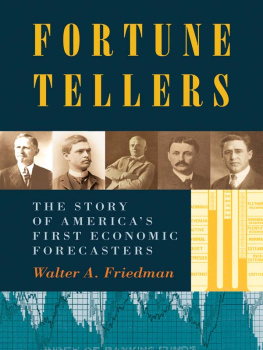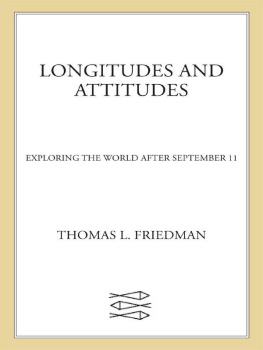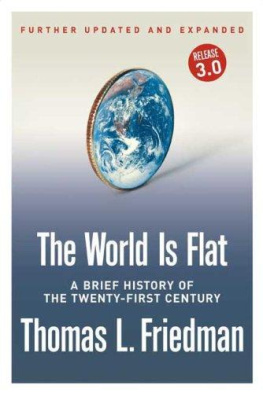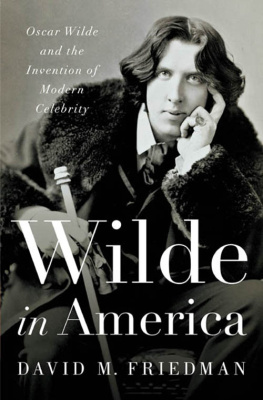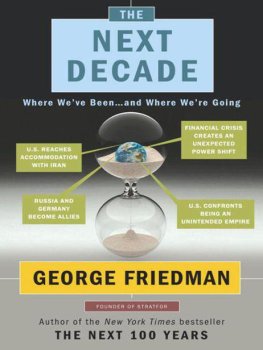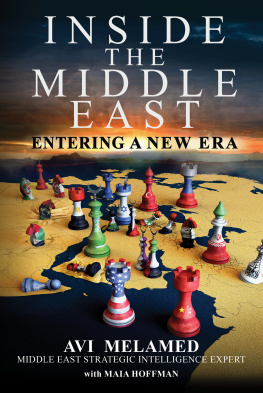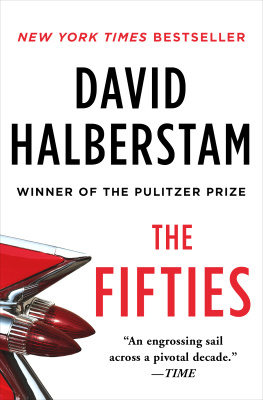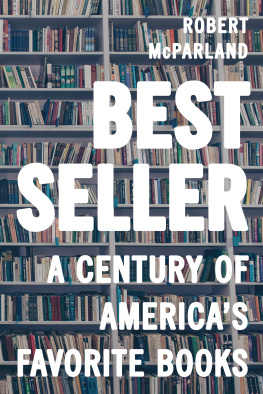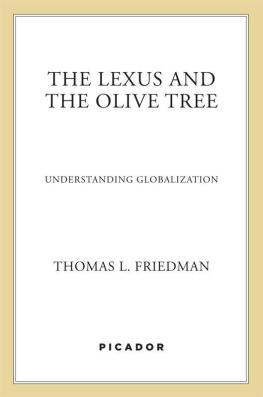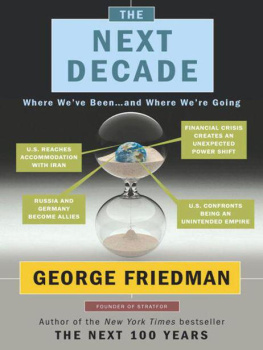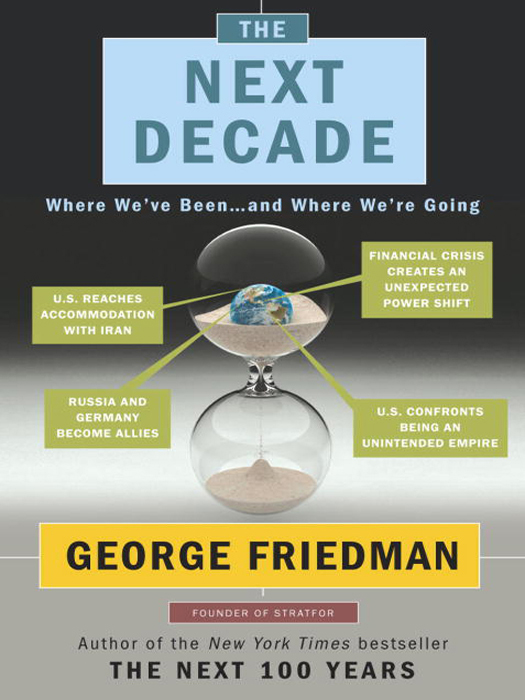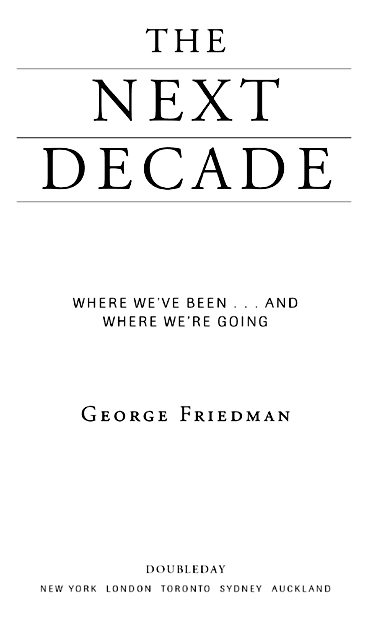A LSO BY G EORGE F RIEDMAN
THE NEXT 100 YEARS
AMERICAS SECRET WAR
THE FUTURE OF WAR
THE INTELLIGENCE EDGE
THE COMING WAR WITH JAPAN
POLITICAL PHILOSOPHY OF THE FRANKFURT SCHOOL

Copyright 2011 by George Friedman
All rights reserved. Published in the United States by Doubleday, a division of Random House, Inc., New York,
and in Canada by Random House of Canada, Limited, Tonronto.
www.doubleday.com
DOUBLEDAY and the DD colophon are registered trademarks of Random House, Inc.
All maps created by STRATFOR
Jacket design by Emily Mahon
Jacket photograph Chad Baker/Getty Images
Library of Congress Cataloging-in-Publication Data
Friedman, George.
The next decade / George Friedman.
p. cm.
. World politicsst centuryForecasting. I. Title.
D.F 2011
.dc 2010043116
eISBN: 978-0-385-53295-2
v3.1
For Don Kuykendall,
Friend
I hope to have God on my side, but I must have Kentucky.
A BRAHAM L INCOLN
Rules are not necessarily sacred, principles are.
F RANKLIN R OOSEVELT
We cannot play innocents abroad in a world that is not innocent.
R ONALD R EAGAN
It is necessary for a prince who wishes to maintain his position to learn how not to be good, and to use this knowledge or not to use it according to necessity.
N ICCOL M ACHIAVELLI
CONTENTS

CHAPTER 1
T HE U NINTENDED E MPIRE
CHAPTER 2
R EPUBLIC, E MPIRE, AND THE M ACHIAVELLIAN P RESIDENT
CHAPTER 3
T HE F INANCIAL C RISIS AND THE R ESURGENT S TATE
CHAPTER 4
F INDING THE B ALANCE OF P OWER
CHAPTER 5
T HE T ERROR T RAP
CHAPTER 6
R EDEFINING P OLICY:
T HE C ASE OF I SRAEL
CHAPTER 7
S TRATEGIC R EVERSAL: T HE U NITED S TATES, I RAN,
AND THE M IDDLE E AST
CHAPTER 8
T HE R ETURN OF R USSIA
CHAPTER 9
E UROPES R ETURN TO H ISTORY
CHAPTER 10
F ACING THE W ESTERN P ACIFIC
CHAPTER 11
A S ECURE H EMISPHERE
CHAPTER 12
A FRICA: A P LACE TO L EAVE A LONE
CHAPTER 13
T HE T ECHNOLOGICAL
AND D EMOGRAPHIC I MBALANCE
CHAPTER 14
T HE E MPIRE, THE R EPUBLIC, AND THE D ECADE
LIST OF ILLUSTRATIONS

AUTHORS NOTE

This book is about the relation among empire, republic, and the exercise of power in the next ten years. It is a more personal book than The Next 100 Years because I am addressing my greatest concern, which is that the power of the United States in the world will undermine the republic. I am not someone who shuns power. I understand that without power there can be no republic. But the question I raise is how the United States should behave in the world while exercising its power, and preserve the republic at the same time.
I invite readers to consider two themes. The first is the concept of the unintended empire. I argue that the United States has become an empire not because it intended to, but because history has worked out that way. The issue of whether the United States should be an empire is meaningless. It is an empire.
The second theme, therefore, is about managing the empire, and for me the most important question behind that is whether the republic can survive. The United States was founded against British imperialism. It is ironic, and in many ways appalling, that what the founders gave us now faces this dilemma. There might have been exits from this fate, but these exits were not likely. Nations become what they are through the constraints of history, and history has very little sentimentality when it comes to ideology or preferences. We are what we are.
It is not clear to me whether the republic can withstand the pressure of the empire, or whether America can survive a mismanaged empire. Put differently, can the management of an empire be made compatible with the requirements of a republic? This is genuinely unclear to me. I know the United States will be a powerful force in the world during this next decadeand for this next century, for that matterbut I dont know what sort of regime it will have.
I passionately favor a republic. Justice may not be what history cares about, but it is what I care about. I have spent a great deal of time thinking about the relationship between empire and republic, and the only conclusion I have reached is that if the republic is to survive, the single institution that can save it is the presidency. That is an odd thing to say, given that the presidency is in many ways the most imperial of our institutions (it is the single institution embodied by a single person). Yet at the same time it is the most democratic, as the presidency is the only office for which the people, as a whole, select a single, powerful leader.
In order to understand this office I look at three presidents who defined American greatness. The first is Abraham Lincoln, who saved the republic. The second is Franklin Roosevelt, who gave the United States the worlds oceans. The third is Ronald Reagan, who undermined the Soviet Union and set the stage for empire. Each of them was a profoundly moral man who was prepared to lie, violate the law, and betray principle in order to achieve those ends. They embodied the paradox of what I call the Machiavellian presidency, an institution that, at its best, reconciles duplicity and righteousness in order to redeem the promise of America.
I do not think being just is a simple thing, nor that power is simply the embodiment of good intentions. The theme of this book, applied to the regions of the world, is that justice comes from power, and power is only possible from a degree of ruthlessness most of us cant abide. The tragedy of political life is the conflict between the limit of good intentions and the necessity of power. At times this produces goodness. It did in the case of Lincoln, Roosevelt, and Reagan, but there is no assurance of this in the future. It requires greatness.
Geopolitics describes what happens to nations, but it says little about the kinds of regimes nations will have. I am convinced that unless we understand the nature of power, and master the art of ruling, we may not be able to choose the direction of our regime. Therefore, there is nothing contradictory in saying that the United States will dominate the next century yet may still lose the soul of its republic. I hope not, as I have children and now grandchildrenand I am not convinced that empire is worth the price of the republic. I am also certain that history does not care what I, or others, think.



